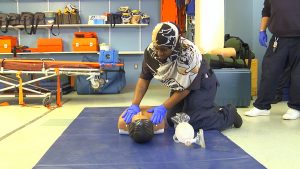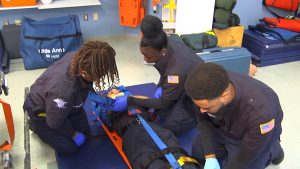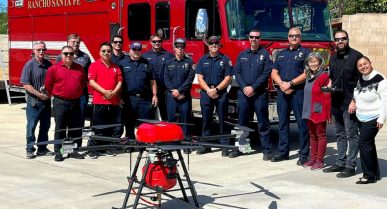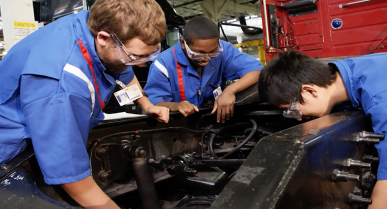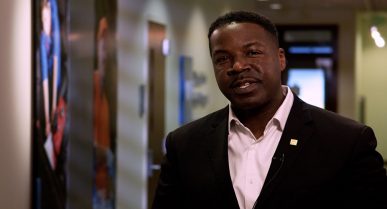Rigorous Training is Paying Off for EMT Students at Philadelphia Job Corps
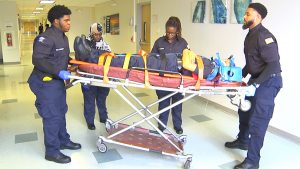 Men and women dressed in medical uniforms pull a woman on a stretcher down a hallway. It looks real, but this is just training…intense training. These students are studying to become emergency medical technicians or EMTs. It’s a lot of work.
Men and women dressed in medical uniforms pull a woman on a stretcher down a hallway. It looks real, but this is just training…intense training. These students are studying to become emergency medical technicians or EMTs. It’s a lot of work.
“You have to have the will,” says instructor Philip Kahn, “the power, the gumption. It has to be a passion.”
Kahn has been in the medical field for two decades and has been teaching at the Philadelphia Job Corps Life Science Institute for nearly seven years. Alexus Robinson is one of his students. She’s feeling the pressure of her new career.
“The coursework is hard…It’s a fast-paced trade,” she says. “And we’re dealing with people’s lives. So, we actually have to know exactly what we’re doing.”
When Alexus enrolled in the EMT program, she didn’t think she was going to make it. It was a shock to her system. She started at the bottom of her class, but she never gave up. She says her instructor is strict, and that’s exactly what they need.
“In real life, life is hard. This field is hard. So, I really appreciate everything that he does.”
And Alexus is no stranger to hard work.
“It’s kind of hectic. I’m a mom. I have one child. So, my life was busy, but now it’s just a little busier. But, at the end of the day, I want to provide my son with a better life, so I have to do what I have to do.”
And she’s doing it. She’s at the top of her class right now.
“Alexus is awesome,” adds Kahn. “She has a child. She works overnight then comes right to work. She currently has the highest-grade point average.”
A few more months of training, some rigorous hands-on and written exams and Alexus will be a certified EMT earning more than 50,000 a year.
“They’ll probably be employed the minute they get their certifications… EMT is probably the stepping stone to open your career in any medical field. I have students now who are going to become physician’s assistants, respiratory therapists.”
And Alexus says it’s all because of Job Corps.
“I feel like it’s underrated. A lot of people don’t look for Job Corps; they’d rather go to college. But, if they knew everything that you could get from Job Corps—they would be here.”
